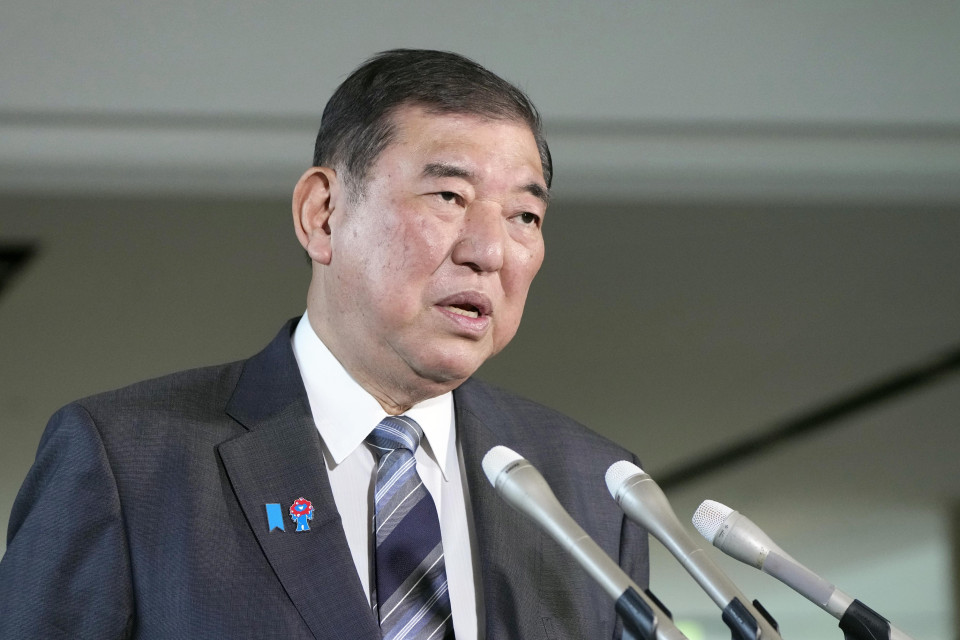Prime Minister Shigeru Ishiba said Friday Japan will not sacrifice its national interests to conclude ongoing tariff negotiations with the United States, following the end of another round of ministerial-level talks.
Ishiba said the talks were “very positive and constructive” but there remain gaps between the two nations, telling reporters that “maximum efforts” are needed from both sides to reach any deal.
During the roughly two-hour meeting in Washington with U.S. government officials, including Treasury Secretary Scott Bessent, Japan’s top negotiator Ryosei Akazawa called for a review of the tariff policy undertaken by President Donald Trump.
According to Japanese government sources, Washington has been reluctant to exempt Japan from higher tariffs on imports of cars, iron and steel, and aluminum — measures that have been suspended for 90 days since early April — as well as the 10 percent baseline tariff applied to numerous countries and regions.
While no substantive agreement was reached, the ministers agreed that another round of negotiations will be held from mid-May onward, according to Akazawa, who serves as Japan’s economic revitalization minister.

Japanese Prime Minister Shigeru Ishiba speaks to reporters about the latest tariff talks with the United States, on May 2, 2025, at the premier’s office in Tokyo. (Kyodo) ==Kyodo
Ishiba said “the sooner, the better” when asked about the prospect of a bilateral deal. “That said, we should avoid undermining national interests at the expense of prioritizing speed over the substance” of any agreement, he told reporters at his office.
“They have issues that they want to point out and we have our own,” the prime minister said. “We haven’t reached a point where we can find common ground yet.”
Japan is among the first nations that the United States has begun negotiations with over higher tariffs on U.S. imports, which Trump is using to rectify what he sees as imbalanced trade.
As a longtime security ally of the United States, Japan has been seeking to produce “win-win” results while underscoring its contributions to the world’s largest economy through investment and job creation.
Neither Ishiba nor Akazawa has disclosed details of the ongoing negotiations, including what specific items are on the table. But Akazawa said currency was not a topic during the second round of negotiations.
Trump apparently sees more room for Japan to open its auto and farm sectors. The dollar’s strength against the yen is also seen as a source of contention as Trump favors a weaker dollar.
Finance Minister Katsunobu Kato, who is in charge of bilateral talks related to currency, said Friday that Japan can use its holdings of U.S. Treasuries as a bargaining chip in the trade negotiations.
His remark came after U.S. government bonds, equities and the dollar faced a sell-off in financial markets in early April as concerns grew about Trump’s trade policies.
When asked about whether Japan would signal that it will not sell the bonds to ensure stability, Kato said during a TV program, “It is natural to put every possible negotiation card on the table and continue discussions.”
But the minister said it is another matter whether the “tool” would actually be used.
Japan, along with China, are major holders of U.S. Treasuries.
Related coverage:
Japan, U.S. agree to step up tariff talks with June deal in mind
Japanese carmakers post firm U.S. sales growth on rush of buying
FOCUS: Japan’s role for ASEAN increasingly crucial amid U.S. tariff standoff

AloJapan.com